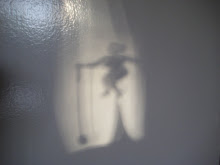Free Press. New York
A quick read from the non-fiction section. As a ‘professional organic’ I could identify with the quest for self-fulfilment with a conscience. For a year, Judith and partner Paul eschewed buying all luxuries. This ban excludes good food.
The year seemed to pass by without too many temptations: movies, restaurant meals and clothes. Judith was tempted outside the pledge a couple of times; clothes both times. She came away with a refreshed palette for worldly goods and an understanding of her vulnerabilities. She had a lot of free fun in the process. Street art, demonstrations, libraries. I liked how she an atheist Jew and Paul a lapsed Catholic find themselves uplifted at a marginally pagan-like church service during the holiday season.
Judith and Paul live half the year in Brooklyn and the other in Vermont. Shying away from the hard line of evils of consumer culture Judith kept a diary of her feelings and justifications, these ranged from anxiety, frustration, boredom and contentment. Leaving off on a note of quietened appetite and a more nuanced palette.
Judith picked at the threads of fulfilment, identity and the joys of fine-tuning your identity through the filthy lucre of shopping. Judith acknowledges that her desires run the way of bohemia rather than mainstream, nevertheless the urges are the same. Giving money to a friend’s poetry reading is recognised as discretionary spending, so is desiring the latest released books.
During the year she engages with a number of groups and individuals who are going about to challenge the consumer culture. These include a group who meet to discuss voluntary simplicity. Mainly turning to be about tailoring spending to fit with reduced wages due to unemployment. Clutter is much mentioned. Also Judith describes the life of Richard Czaplinski. Richard lives the on $5,000 and seems virtuous and productive doing it. Does not miss much. Is highly self-sufficient and leaves a very small ecological footprint.
In the writing, one gets a sense of her sense of frustration and irritability with herself and the consumer pickle.
Through this book there runs the thread of left leaning liberal (or in the US setting the Democrat) concerns with human rights. The argument is for working a little less and enjoying wealth a little more sensitively. Frivolity is not dismissed. Judith battles with herself about some desirable lime green stiletto heels, she resists but does not dismiss these as unworthy. Thoreau’s idea of the noble savage is tried on and discarded as not being a good fit or a realistic goal for the urban population.
Gift giving is much discussed and analysed. One of my favourite minor plot dramas was the need for graduation present when a table full of origami animals just does not cut it.
So battle through your own ‘needs’… Is wine a necessity? What about cotton buds? Bring your own lunch, go for a walk and a picnic, rally for your rights, participate in democracy, and pay off your credit card, start home brewing, if you must, join the library and trust in the kindness of friends. Most of all experience a greater mindfulness about your life and what it requires. Rather than fixing it all with shopping: feel your vulnerability and revel in it.

No comments:
Post a Comment